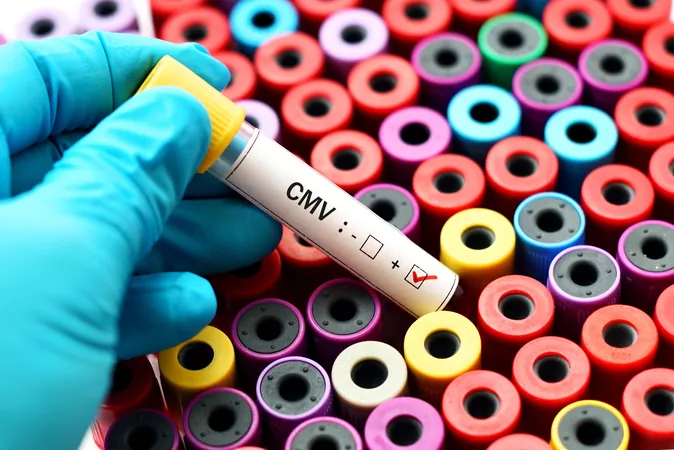
Breakthrough Study: First-Trimester CMV Screening Proves to Be Cost-Effective!
2025-09-16
Author: Ming
Is First-Trimester Cytomegalovirus Screening the Future of Prenatal Care?
A groundbreaking study published in the *American Journal of Obstetrics & Gynecology* has revealed that screening for primary cytomegalovirus (CMV) during the first trimester could be a game-changer in prenatal healthcare costs, potentially saving millions and preventing birth defects.
What You Need to Know About Cytomegalovirus and Pregnancy
Over half of all individuals in the US will be infected with CMV by the age of 40, and if contracted during pregnancy, it can lead to congenital cytomegalovirus (cCMV). Congenital CMV is the leading cause of infectious birth defects in the US, prompting a renewed focus on effective management strategies by healthcare professionals.
Why Screening Has Been Controversial
Despite the pressing need, universal CMV screening during pregnancy has faced resistance due to its complexity. Distinguishing between primary and secondary infections has been challenging, and until recently, there were no proven treatments to prevent the vertical transmission of the virus to the fetus.
A New Era of Screening and Treatment
With advancements in treatments, researchers conducted a comprehensive analysis using a decision-analytic model based on data from 2,869,141 patients. This study pitted the benefits of first-trimester screening against the traditional lack of screening, aiming to validate the cost-effectiveness of this proactive approach.
The Numbers Behind Cost-Effectiveness
The findings of the study are striking: implementing first-trimester CMV screening could reduce vertical transmission by 2,898 cases, prevent 94 abortions, and avert 19 stillbirths and 11 neonatal deaths. Additionally, it could significantly decrease cases of hearing loss and neurodevelopmental disabilities by 460 and 263, respectively.
A Glimpse at the Financial Benefits
The study estimates that universal screening could save approximately $242.2 million while adding an impressive 3,437 quality-adjusted life years (QALYs). Even in sensitivity analyses that reduced test specificity, the cost-effectiveness ratio of universal screening remained significantly higher than existing screening methods.
Looking Ahead: Future Research Needs
The researchers advocate for more extensive studies to reconcile previous findings with their own results, emphasizing the need for larger sample sizes to confirm that treatments like valacyclovir are both effective and safe during pregnancy. As the medical community evaluates these findings, the potential for integrating first-trimester CMV screening into standard prenatal care becomes increasingly compelling.
In summary, this study not only highlights the importance of early detection and treatment of CMV but also makes a strong case for rethinking current practices in prenatal care to save lives and reduce healthcare costs.
 Brasil (PT)
Brasil (PT)
 Canada (EN)
Canada (EN)
 Chile (ES)
Chile (ES)
 Česko (CS)
Česko (CS)
 대한민국 (KO)
대한민국 (KO)
 España (ES)
España (ES)
 France (FR)
France (FR)
 Hong Kong (EN)
Hong Kong (EN)
 Italia (IT)
Italia (IT)
 日本 (JA)
日本 (JA)
 Magyarország (HU)
Magyarország (HU)
 Norge (NO)
Norge (NO)
 Polska (PL)
Polska (PL)
 Schweiz (DE)
Schweiz (DE)
 Singapore (EN)
Singapore (EN)
 Sverige (SV)
Sverige (SV)
 Suomi (FI)
Suomi (FI)
 Türkiye (TR)
Türkiye (TR)
 الإمارات العربية المتحدة (AR)
الإمارات العربية المتحدة (AR)